
All This, and Heaven Too is a 1940 American drama film released by Warner Bros.-First National Pictures, produced and directed by Anatole Litvak with Hal B. Wallis as executive producer. The screenplay was adapted by Casey Robinson from the 1938 novel by Rachel Field. The music was by Max Steiner and the cinematography by Ernie Haller. The film stars Bette Davis and Charles Boyer with Barbara O'Neil, Jeffrey Lynn, Virginia Weidler, Helen Westley, Walter Hampden, Henry Daniell, Harry Davenport, George Coulouris, Montagu Love, Janet Beecher and June Lockhart.

Dame Daphne du Maurier, Lady Browning, was an English novelist, biographer and playwright. Her parents were actor-manager Sir Gerald du Maurier and his wife, actress Muriel Beaumont. Her grandfather was George du Maurier, a writer and cartoonist.

My Cousin Rachel is a 1952 American romantic mystery film directed by Henry Koster and starring Olivia de Havilland, Richard Burton, Audrey Dalton, Ronald Squire, George Dolenz and John Sutton. The film is based on the 1951 novel of the same name by Daphne du Maurier.
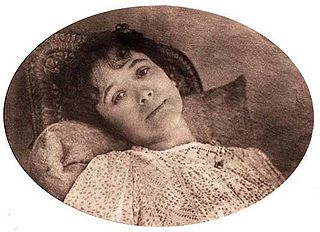
Sylvia Jocelyn Busson Llewelyn Davies was the mother of the boys who were the inspiration for the stories of Peter Pan by J. M. Barrie. She was the daughter of cartoonist and writer George du Maurier and his wife Emma Wightwick, the elder sister to actor Gerald du Maurier, the aunt of novelists Angela and Daphne du Maurier, and a great-granddaughter of Mary Anne Clarke, royal mistress of Prince Frederick, Duke of York and Albany.
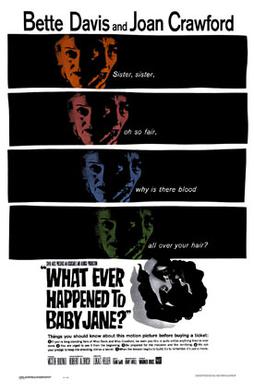
What Ever Happened to Baby Jane? is a 1962 American psychological horror thriller film directed and produced by Robert Aldrich, from a screenplay by Lukas Heller, based on the 1960 novel of the same name by Henry Farrell. The film stars Bette Davis and Joan Crawford, and features the major film debut of Victor Buono. It follows an aging former child star tormenting her paraplegic sister, a former film star, in an old Hollywood mansion.

The Scapegoat is a 1957 novel by Daphne du Maurier. In a bar in France, a lonely English academic on holiday meets his double, a French aristocrat who gets him drunk, swaps identities and disappears, leaving the Englishman to sort out the Frenchman's extensive financial and family problems.

French Cancan is a 1955 French-Italian musical film written and directed by Jean Renoir and starring Jean Gabin, Francoise Arnoul, and María Félix. It marked Renoir's return to France and to French cinema after an exile that began in 1940.
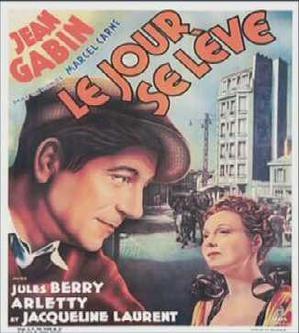
Le jour se lève is a 1939 French film directed by Marcel Carné and written by Jacques Prévert, based on a story by Jacques Viot. It is considered one of the principal examples of the French film movement known as poetic realism.

Françoise de Foix, Comtesse de Châteaubriant was a chief mistress of Francis I of France.

Les p'tites Michu is an opérette in three acts, with music by André Messager and words by Albert Vanloo and Georges Duval. The piece is set in Paris in the years following the French Revolution and depicts the complications ensuing after the identities of two girls become confused in their infancy.
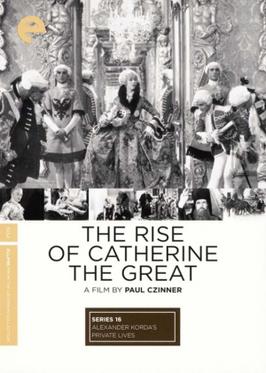
The Rise of Catherine the Great is a 1934 British historical film about the rise to power of Catherine the Great. It was directed by Paul Czinner, and stars Elisabeth Bergner as Catherine, Douglas Fairbanks, Jr., as Grand Duke Peter, Dorothy Hale as Countess Olga, and Flora Robson as Empress Elizabeth.

Me and the Colonel is a 1958 American comedy film based on the play Jacobowsky und der Oberst by Franz Werfel. It was directed by Peter Glenville and stars Danny Kaye, Curd Jürgens and Nicole Maurey.

Nicole Maurey was a French actress, who appeared in 65 film and television productions between 1945 and 1997.
Joan of Artois, Countess of Foix, Viscountess of Béarn, was a French noblewoman, and the wife of Gaston I de Foix, Count of Foix, Viscount of Béarn. From 1331 to 1347 she was imprisoned by her eldest son on charges of scandalous conduct, dissolution, and profligacy.
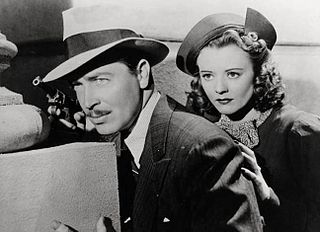
Bulldog Drummond's Bride is an American crime comedy thriller film produced in 1939. It was the last film of Paramount Pictures' Bulldog Drummond film series.

Le Diable et les Dix Commandements is a French film from 1962 directed by Julien Duvivier that consists of seven sketches played by an ensemble cast that includes Michel Simon, Micheline Presle, Françoise Arnoul, Mel Ferrer, Charles Aznavour, Lino Ventura, Fernandel, Alain Delon, Danielle Darrieux, Jean-Claude Brialy, and Louis de Funès.
The Scapegoat is a British film adaptation of Daphne du Maurier's 1957 novel of the same name. The drama is written and directed by Charles Sturridge and stars Matthew Rhys as lookalike characters John Standing and Johnny Spence. It was broadcast on ITV on 9 September 2012.

Journal of a Crime is a 1934 American pre-Code crime drama film produced by First National Pictures. It was directed by William Keighley and stars Ruth Chatterton, Adolphe Menjou and Claire Dodd. The film is a remake of the 1933 French film Une vie perdue, written by Jacques Deval.

Berthe Cerny was a French actress, known as an elegant blonde beauty. She had a brilliant career, interpreting both classical and contemporary roles. She had several affairs, including with the politicians Aristide Briand and Paul Reynaud, and had two sons by other lovers. She joined the Comédie-Française in 1906 and became a sociétaire in 1909.

The New Commandment is a 1925 American silent drama film directed by Howard Higgin and written by Sada Cowan and Howard Higgin. It is based on the 1925 novel Invisible Wounds by Frederick Palmer. The film stars Blanche Sweet, Ben Lyon, Holbrook Blinn, Clare Eames, Effie Shannon, and Dorothy Cumming. The film was released on November 1, 1925, by First National Pictures.


















